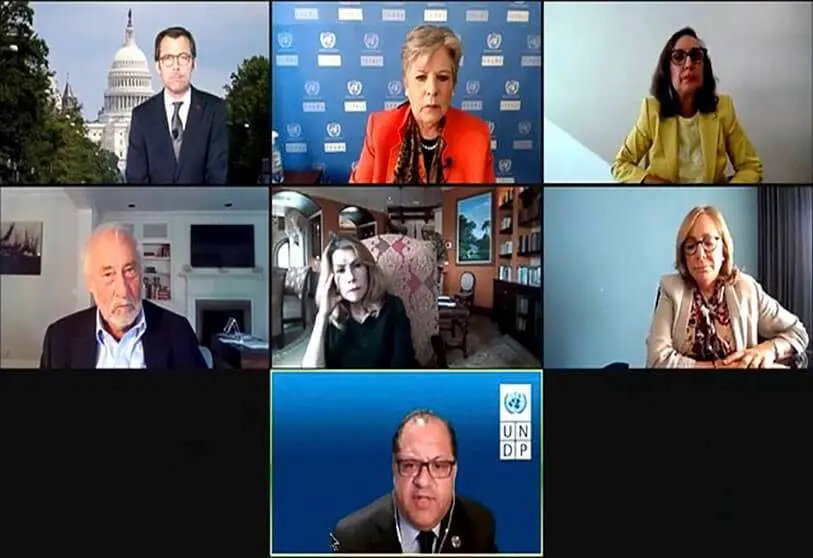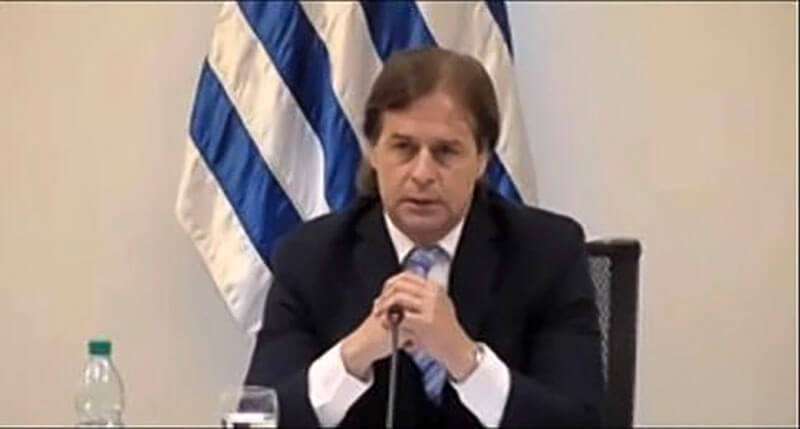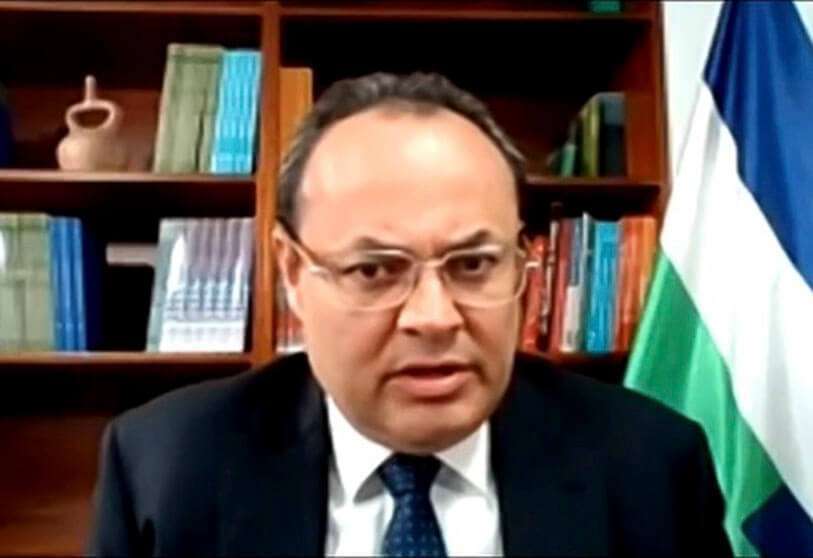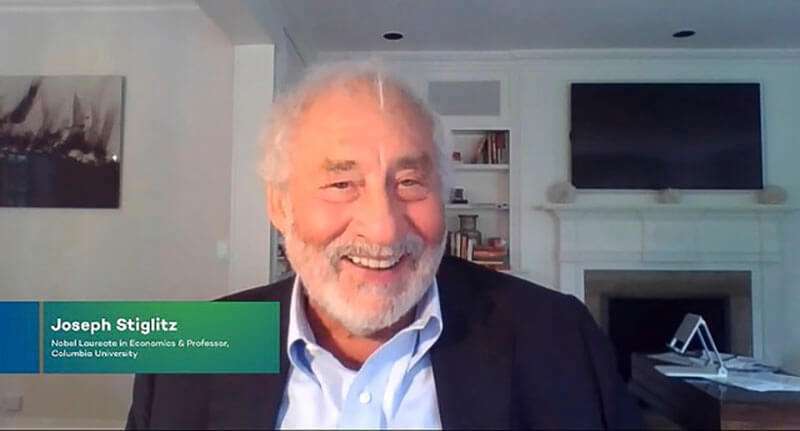The 24th edition of the CAF Annual Conference focuses on economic recovery and the social contract in Latin America after the coronavirus crisis

The post-COVID-19 economic recovery and the future of the social contract in the Americas was the focus of debate at the first session of the 24th CAF Annual Conference, where Uruguayan President Luis Lacalle Pou, along with Nobel Laureate in Economics Joseph Stiglitz and international experts agreed on the importance of prioritising investment in infrastructure, health and education to mitigate the impacts on inequality and poverty, as well as to reactivate economic growth in Latin America.
The COVID-19 pandemic made it clear that globalisation is a reality that brings with it uncertainty about the future and requires greater responsibility from everyone for the consequences it can generate. This was the initial message of the President of the Oriental Republic of Uruguay, Luis Lacalle Pou, during his speech at the 24th Annual CAF Conference, in which he shared the strategy implemented by his government to mitigate the effects of the health emergency with one of the most satisfactory results in the region.
"The key has been to empower the citizen. The Uruguayan has responded in an exemplary manner. If today the records of the pandemic in our country are acceptable in comparison with the rest of the world, it is not because of the government, we only interpreted the national vocation that was the responsible use of their freedom. That is an opportunity and a legacy that remains for the future. Governments that are not afraid to empower the citizen, to provide information and to be transparent. This generates confidence, which like freedom is another tool to be able to work on the uncertainty of the future. If we generate speeches and coordinated actions, trust and action are generated, and there is a virtuous circle," explained Lacalle Pou.

Balancing the protection of citizens with the economic dynamics to maintain the social gains achieved in recent decades and supporting the most vulnerable with social assistance is part of the strategy implemented in Uruguay thanks to rapid and timely access to funding from multilateral agencies, so President Lacalle Pou called for strengthening them for the benefit of the entire region.
"We have a point in this global and regional integration that is to strengthen the multilateral credit agencies not only from the point of view of capital, of the availability of resources, but also to cover more solutions or to enlarge their toolbox for this type of situation. It is clear that we are all going to live with uncertainty," said the President of Uruguay.
The 24th CAF Conference began with the words of Michael Shifter and Tomas Shannon, president and co-president of the Inter-American Dialogue, together with Luis Carranza Ugarte, executive president of CAF - Latin American development bank, who highlighted the importance of promoting intraregional integration, since it only represents 15%, compared to 63% in Europe or 42% in Asia.

"We have to definitively address the challenge of closing the digital infrastructure and regional integration gap, and for that we require fiscal effort and international cooperation to be able to have sources of long-term financing at concessionary rates that allow us to sustainably advance in the challenge of closing the gap. In this way, the problem of integration in our region will be addressed, not as a political process, but as a useful instrument to improve the well-being of our citizens," Carranza said.
Economic recovery post-COVID-19 and the future of the social contract in the Americas was the focus of the first panel moderated by Luis Felipe López Calva, regional director for Latin America and the Caribbean of the United Nations Development Programme (UNDP), with the participation of Rebeca Grynspan, Ibero-American Secretary General (SEGIB); Joseph E. Stiglitz, Nobel Laureate in Economics and Professor at Columbia University; Carmen Reinhart, Vice-President and Chief Economist of the World Bank Group; Paula Santilli, CEO of PepsiCo Latin America; and Alicia Bárcena, Executive Secretary of the Economic Commission for Latin America and the Caribbean (ECLAC).

"Unlike the 2008 crisis, interest rates are close to zero, so there are many long-term savings and investments available that would help this recovery in the sustainable way we would all like to see, such as green transition and infrastructure in Latin America, among others; but what is obstructing these long-term funds or access to them are financial markets that look to the short term and development banks like CAF have played an important role in directing them to the long term. Now is the time to push for recapitalisation of multilateral institutions because as part of the recovery we need a long-term vision that should include the transition to greener economies and more inclusive finance in order to have a stronger recovery from the pandemic," said Joseph E. Stiglitz.
The 24th Annual CAF Conference, organized by the Inter-American Dialogue, the Organization of American States (OAS) and CAF, will continue this week with the following panels:
Thursday 10: Successes and failures: hemispheric health systems severely tested; a conversation on coronavirus, climate change and the environment: where does LAC stand? Hopes and Hazards: Digital transformation in the region.
Friday 11: Pandemic politics: Impact on democracy and Rule of Law in Latin America; US presidential elections: Implications for LAC.








